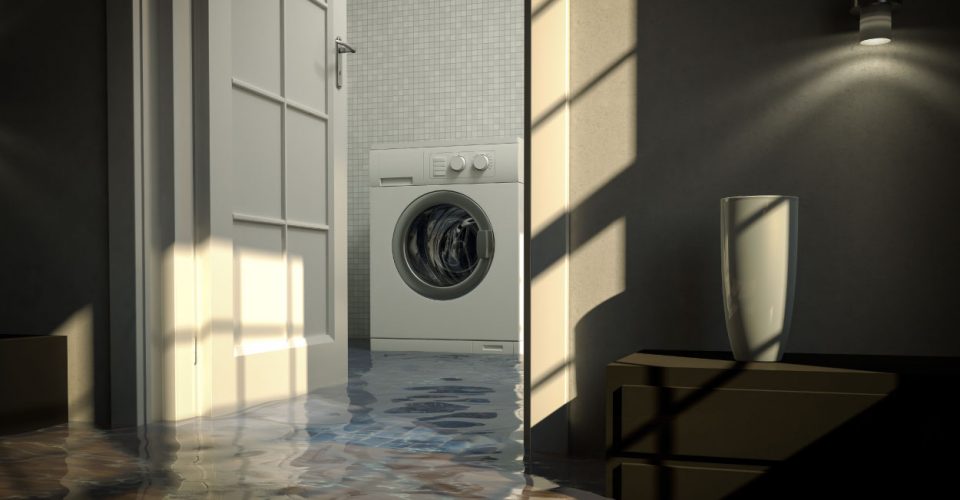Foolproof Ways To Keep Your Basement Dry
Having a wet basement isn’t just inconvenient; it can also lead to a host of other problems, including mould growth and structural damage. However, there’s good news: keeping your basement dry doesn’t involve complex science.
The solution involves implementing specific waterproofing strategies, consistently monitoring for signs of moisture, and swiftly rectifying any water intrusion issues before they amplify. Here’s how to ensure that the lowest level of your home stays comfortably dry.

Establish A Robust Exterior Drainage System
Creating a waterproof haven begins from the outside. Constructing an intricately planned exterior drainage system, including gutters, downspouts, and drainage pipes, helps block water from making an initial unwelcome entry into the basement.
In addition, it’s important to fix blocked gutters immediately and ensure that downspouts are clear of debris and carefully directed away from the foundation. If necessary, you can also use downspout extensions and consider adding splash blocks to prevent soil erosion.
It’s not merely about having a drainage system; it’s about ensuring it works efficiently and directs water a significant distance away, preferably no less than six feet.
Inspect And Repair Foundation Cracks Promptly
Even a hairline fracture in the foundation can serve as a gateway for water infiltration. The smaller, unnoticed fissures can allow water to permeate the basement, creating a damp environment.
Use epoxy to mend any visible cracks, and if the problem persists or seems out of hand, don’t hesitate to call in the experts for waterproofing your basement walls. Professional intervention sometimes becomes necessary to tackle foundational issues effectively and permanently.
Install A Sump Pump
A sump pump operates as a basement’s primary line of defence against water accumulation, automatically activating when water levels rise. Positioned at the lowest point of the basement, it detects rising water levels and funnels this water away, ensuring the basement remains dry.
To guarantee its optimal functionality, it’s crucial to conduct monthly inspections, clean its filter, and check for any possible obstructions. Remember, a sump pump in top-notch condition is always ready to manage unexpected water entering your property. As a result, it can help keep your home flood-proof and free from water damage.
Use Dehumidifiers
Dehumidifiers are essential tools for basements, especially in regions that experience high humidity levels. These devices extract excess moisture from the air, effectively reducing the chances of mould and mildew growth and the stale odours often associated with dampness.
By maintaining the right balance of humidity, dehumidifiers ensure a comfortable, dry environment conducive to storing items without the fear of water damage. Pairing them with a hygrometer, a device that measures humidity levels, can provide a clear picture of the basement’s moisture conditions, guiding timely adjustments.
Ensure Proper Sloping Around The House
Shifting focus back outdoors, the grade of the land around the house plays a critical role in directing water away, or unfortunately sometimes, towards it.
Adequate sloping, guiding water away from the foundation, is a silent guardian against basement flooding. That said, check the grade and adjust the landscaping if required, ensuring water knows its path, a path that decidedly avoids the basement.
Vet Your Windows Well
Windows, an often-underappreciated component in the waterproofing process, can be hidden culprits, allowing unwarranted moisture into basements. Ensuring their secure sealing eliminates a potential entry point for water while also bolstering energy efficiency by preventing conditioned air from escaping.
Additionally, consider installing high-quality window well covers, especially those designed with clear, durable materials. This prevents water and debris from sneaking in while allowing precious natural light to permeate the basement space, keeping it well-illuminated and pleasantly usable.
Engage In Regular Maintenance Checks
Maintaining a perpetually dry basement isn’t a one-time affair; it requires ongoing attention. Therefore, engage in regular checks of all implemented systems, ensuring their optimal functionality. Moreover, take note of any musty smells or visible damp spots, as these serve as early warnings that the defences may need bolstering.
By being attentive and consistent in your maintenance efforts, you can ensure that your basement remains a dry and usable space as it should be.
Invest In Water-Resistant Materials
When renovating or finishing your basement, investing in the following water-resistant materials can make a difference in minimising the risk of damage in the event of a minor water intrusion:
- Water-Resistant Paint: It’s a specialised paint that creates a barrier against moisture. Once applied, it forms an impermeable layer, thereby preventing dampness from seeping into walls and ceilings.
- Moisture-Defying Drywall: Unlike traditional drywall, this variant is designed to repel water, making it harder for mould and mildew to find a foothold.
- Vinyl Flooring: Unlike wooden flooring, which can warp or carpet that can retain moisture, vinyl flooring provides an aesthetic solution without the susceptibility to water damage.
By proactively opting for these materials, one not only safeguards the basement from damage but also enhances its durability and longevity. Incorporating them from the outset or during renovations can save time, effort, and money in future reparations and replacements.
Conclusion
A well-maintained basement is a beacon of a healthy, happy home. Follow the tips above to keep it dry and mould-free. This way, you’ll enjoy your additional living, storage, or recreational space for years to come.

